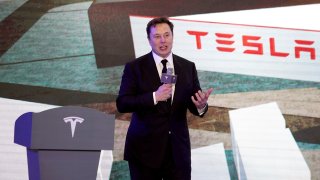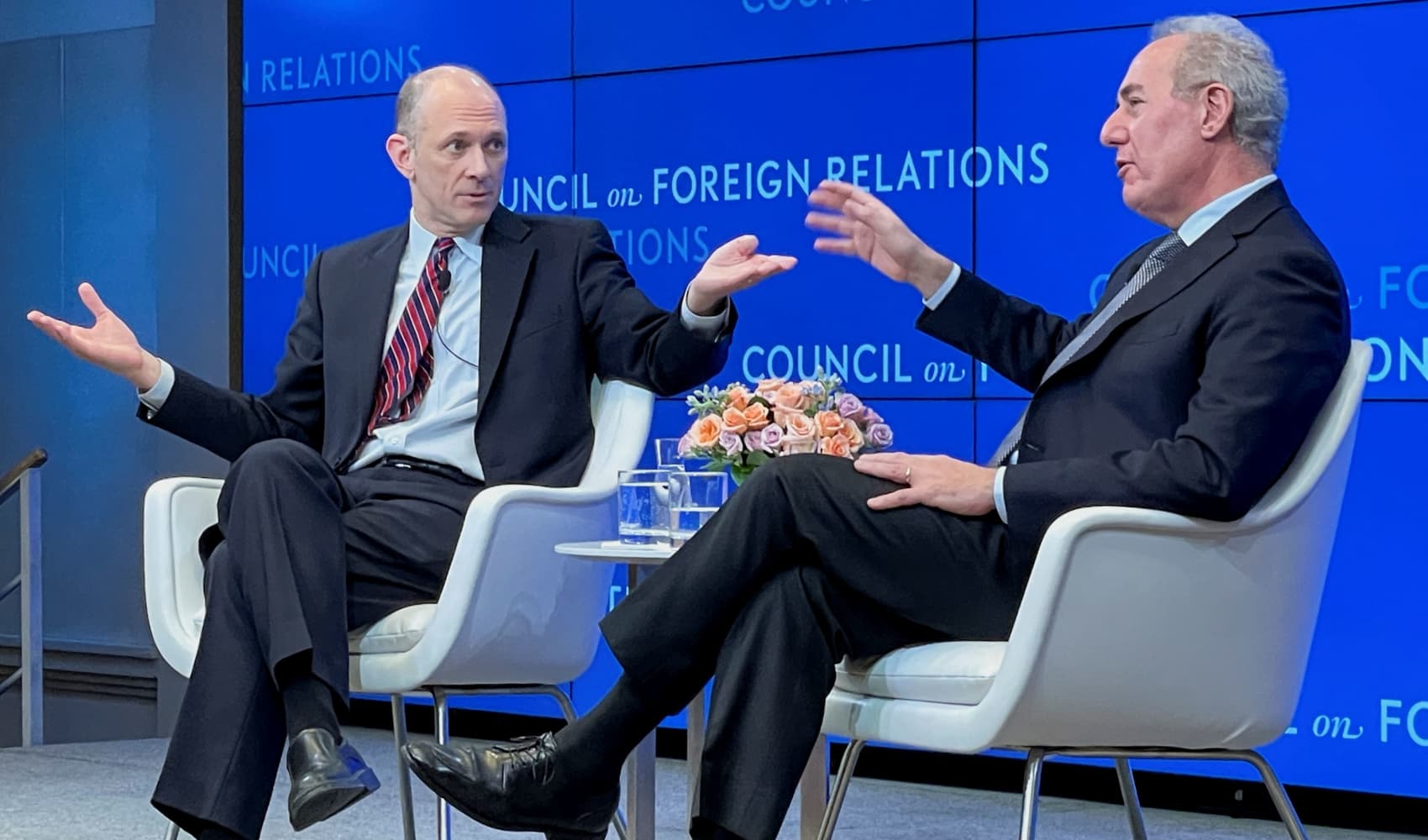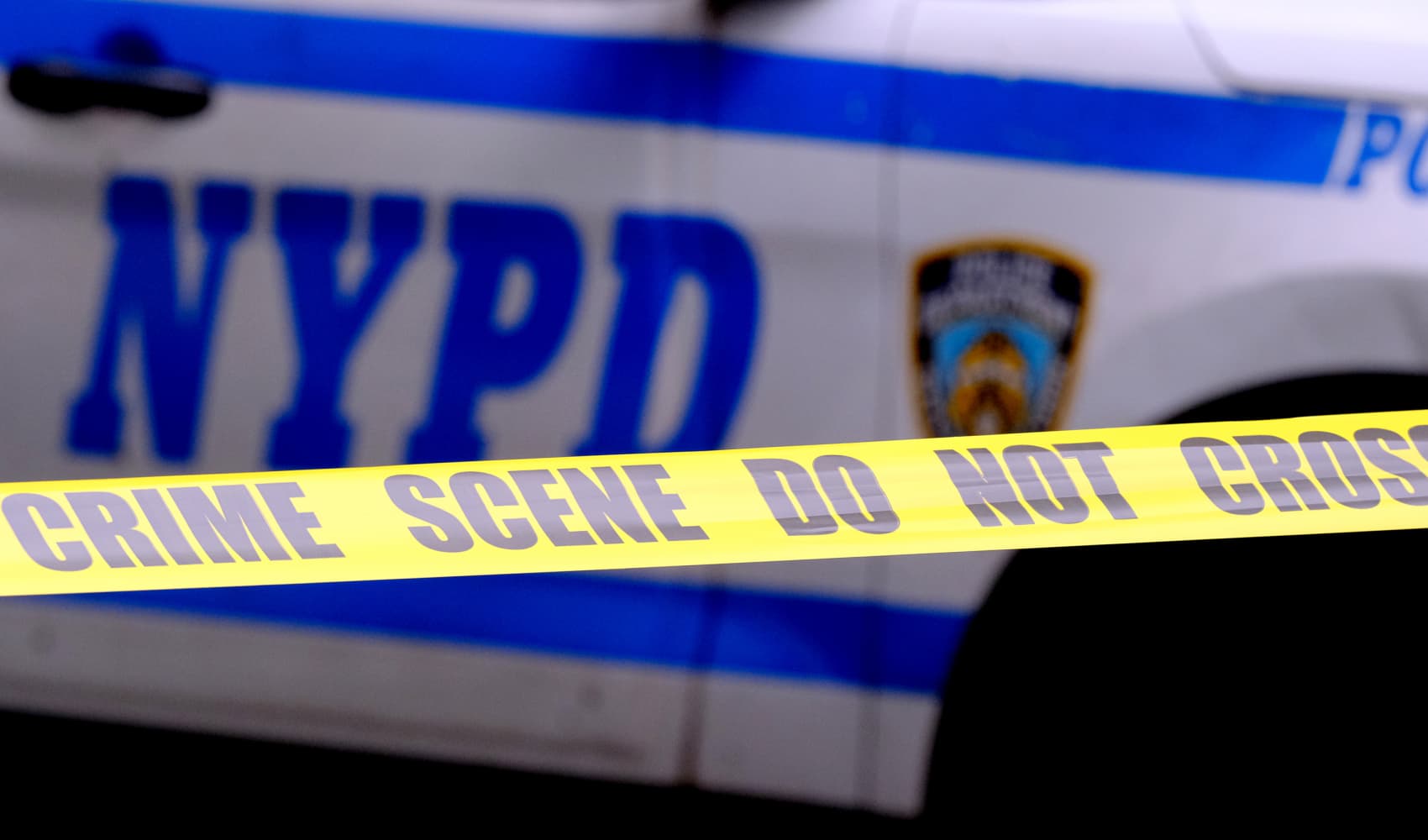
- A woman who claimed to be a Tesla customer protested an alleged brake failure in her car at the company's booth at the Shanghai auto show.
- Tesla claimed the woman had a collision due to a speeding incident and has been negotiating with her since February.
- Chinese state media branded the company's response as "arrogant" and regulators are increasing their scrutiny of the company.
GUANGZHOU, China — Tesla faces mounting pressure in China as state media and regulators criticize the electric car maker following a woman's protest at a major auto show this week.
Tesla could be facing one of its worst public relations crises in China, a market investors see as critical for its growth.
On Monday, a woman who claimed to be a Tesla customer stood atop one of the company's cars at the Shanghai auto show with a T-shirt that read "brakes don't work." She was protesting an alleged brake failure in her car — an issue other Chinese social media users claiming to be Tesla drivers have complained about in the last several months. A video of the incident went viral on Chinese social networks and was picked up by state media.
Get Southern California news, weather forecasts and entertainment stories to your inbox. Sign up for NBC LA newsletters.
On Tuesday, Shanghai police identified the protester by her surname Zhang and said she was sentenced to five days detention for disturbing public order.
Tesla alleged the woman was involved in a collision in February due to "speeding violations" and that in their two months of negotiations, she would not allow a third-party inspection but insisted on a refund for the car.
Money Report
Criticism for being 'arrogant'
Tesla's vice president for China, Tao Lin, claimed in an interview Monday with Chinese financial news publication Caijing that the woman hoped for a high level of compensation, and the company doesn't have any reason to give it to her.
In a post on Twitter-like service Weibo, Tesla said it would not compromise with "unreasonable demands."
State media and a government agencies were quick to reprimand Tesla. State-run news outlets published a string of editorials, while the Chinese government's central disciplinary commission issued a warning statement.
One state media article titled "Three lessons Tesla ought to learn" advised the U.S.-based electric auto maker to respect the Chinese consumer market, according to a CNBC translation of the Chinese-language text.
"The arrogant and overbearing stance the company exhibited in front of the public is repugnant and unacceptable, which could inflict serious damage on its reputation and customer base in the Chinese market," the state-backed tabloid Global Times said in a separate opinion piece published Wednesday.
Tesla apologized in a statement for not solving the car owner's problems in a timely manner.
In Weibo posts on Monday and Tuesday, Tesla said it's willing to cooperate with authorities. The company said it will carry out "self-examination and self-correction" to "rectify" problems with its customer service process.
On Thursday, Tesla said it handed over raw vehicle data to Zhang from 30 minutes before the crash in question took place. The company has also been in communication with two market regulators.
Tesla's rise in China
Tesla has been a poster child for Beijing's efforts to demonstrate that China is letting more foreign businesses into its relatively closed market.
Tesla has stepped up its focus on China in the last two years. With the support of the government, Tesla broke ground on a major Shanghai factory in 2019 and last year began delivering Model 3 vehicles made at that site to customers in China.
Tesla's China sales more than doubled in 2020, and the Model 3 was the best-selling electric car in the country.
CEO Elon Musk even met with Premier Li Keqiang in 2019. But with success comes scrutiny, especially as China's homegrown companies look for a larger slice of the growing electric vehicle market.
China's favorable policies toward electric cars have spurred the creation of a number of start-ups hoping to compete with Tesla such as Nio and Xpeng Motors, although their sales are still far behind Tesla's.
Read more from the Shanghai auto show
Automakers show off flying cars in Shanghai — but Warren Buffett-backed BYD stays clear
Chinese electric car companies target expansion in Europe while competition heats up at home
China’s best-selling, GM-backed electric car brand launches a mini convertible
"Letting the market leader in was very much in China's interest, but letting the market leader dominate the market is not in China's interest," said Bill Russo, founder and CEO of consulting and investment firm Automobility Limited.
Russo noted that companies including Volkswagen and Daimler's Mercedes unit have gone through similar periods of scrutiny in the past.
Rising scrutiny of Tesla
Negative press about Tesla in China has increased in recent months. Earlier this year, a Tesla Model 3 reportedly exploded in a Shanghai parking garage, while a state media article said there were at least 10 reports in 2020 of Tesla drivers in the country losing control of their cars.
China has also reportedly restricted the use of Tesla cars among state and military personnel over concerns that the vehicle's sensors could record images of their surrounding locations. Musk said his company would be shut down if its cars could be used to spy.
China's market regulator, the State Administration for Market Regulation, met with Tesla's local subsidiaries in February over increased consumer reports of vehicle problems. On Wednesday, the regulator issued a statement saying it places high importance on the Shanghai auto show incident. The authority said it has instructed local regulators to protect consumer interests.
Musk has looked to fend off the scrutiny. In March, he gave an interview to state broadcaster CCTV saying that the future of China is "going to be great" and that the country will be Tesla's "biggest market."
— Evelyn Cheng contributed from Beijing; CNBC's Yin Hon contributed to this report.






